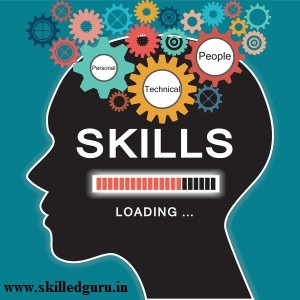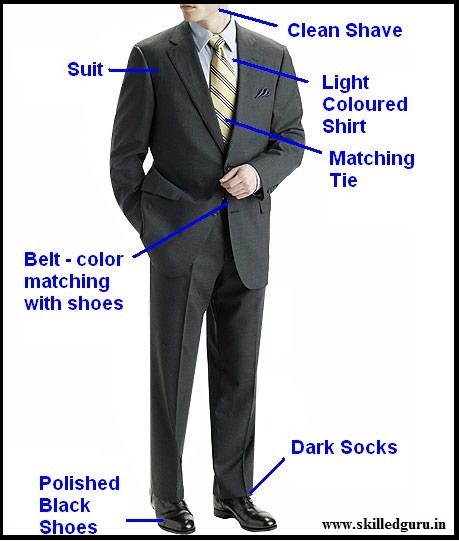Every professional person belongs to technical or non-technical background has to face an interview. It’s crucial to understand what the interviewer look into the candidate. They were looking for the best candidates having excellent skills and personality that were a good fit for their requirements. Some are selected by their qualifications, some by their experience or some others by the kind of leadership or work in college their time. There are some common things that an employer wants in a candidate irrespective of their field.

These days’ companies looking for the professional persons mean candidate must have knowledge of professionalism. Engineering companies and other organizations seek to hire those personalities that are having sound knowledge in spite of this good behavior and attitude too.
Understanding What Employers Looking for
Professional Skills that Interviewer Most Want to See in Graduates:-

Technical Skills:
Good grades are very much important. They want to know that you have the education, credentials, and experience that fulfill the job requirements. They indicate that you have the ability to learn and have mastered certain skills. Froistad said, “In addition to the technical skills that are relevant to the position, employers routinely look for applicants that have relevant internship experience, strong performance in courses related to the position, and engagement in activities outside of the classroom.” Many entry level job postings require applicants to have at least a 65% cutoff, and there are about half as many employment opportunities available to those that have a percentage below 65%.
Soft Skills (Team Work, Communication, Leadership, etc.):
Now a day’s focus on Soft Skills by the employers is increasing. They need those candidates that can analyze complex problems, quickly make decisions about how to handle the situation and then offer and implement solutions. If you were included in activities that are showing your creativity, your leadership your chances of selection is increased number of times. You must be clearly communicated thoughts or issues with management, give presentations to customers, and keep in touch with lots of people with different sources.
T-Shape Concept:
The concept of T-shaped skills or T-shaped persons is a metaphor used in job recruitment to describe the abilities of individuals in the workforce. The vertical bar on the T represents the depth of related skills and expertise in a single field, whereas the horizontal bar is the ability to collaborate across disciplines with experts in other areas and to apply knowledge in areas of competence other than one’s own. Source: Wikipedia. Many interviewers prefer traditional individuals for engineering positions since they seem less likely to take unnecessary risks. Innovative and Creative are valued, but risk-takers are not preferred as much as they are in some professions.
If above three qualities covered by a candidate then no one rejects that candidate in any Interview.
Click Here to download the Top 50 Questions and their best answers.
5 Questions Interviewer Never Forget to Ask
1. Tell me about yourself?
By taking cricket as an example, I try to explain the whole scenario. This is what asked by the interviewer, or you can say this is the first loose ball for you to hit hard. The first impression is the last impression. If you are big well full of Knowledge and skills, but you fail to express yourself, then your beaten in starting off this game of interview. But if you impress the interviewer by your lines about yourself then you played a bigger six. And I think here 70% of the interview is finished. So, Download the above Pdf to find out the best answers with examples. Click Here to know A PERFECT ANSWER TO MOST TERRIFYING INTERVIEW QUESTION
2. How did you hear about the position?
Another seemingly innocuous interview question, this is a perfect opportunity to stand out and show your passion for and connection to the company. For example, if you found out about the gig through a friend or professional contact, name drop that person, then share why you were so excited about it. If you discovered the company through an event or article, share that. Even if you found the listing through a random job board, share what, specifically, caught your eye about the role.
Click Here to download the Top 50 Questions and their best answers.
3. What do you know about the company?
Any candidate can read and regurgitate the company’s “About” page. So, when interviewers ask this, they aren’t necessarily trying to gauge whether you understand the mission—they want to know whether you care about it. Start with one line that shows you understand the company’s goals, using a couple keywords and phrases from the website, but then go on to make it personal. Say, “I’m personally drawn to this mission because…” or “I believe in this approach because…” and share a personal example or two.
4. Why do you want this job?
Again, companies want to hire people who are passionate about the job, so you should have a great answer about why you want the position. (And if you don’t? You probably should apply elsewhere.) First, identify a couple of key factors that make the role a great fit for you (e.g., “I love customer support because I love the constant human interaction and the satisfaction that comes from helping someone solve a problem”), then share why you love the company (e.g., “I’ve always been passionate about education, and I think you guys are doing great things, so I want to be a part of it”).
5. Why should we hire you?
This interview question seems forward (not to mention intimidating!), but if you’re asked it, you’re in luck: There’s no better setup for you to sell yourself and your skills to the hiring manager. Your job here is to craft an answer that covers three things: that you can not only do the work, but you can also deliver great results; that you’ll fit in with the team and culture; and that you’d be a better hire than any of the other candidates.
Click Here to download the Top 50 Questions and their best answers.
Dress Up For any Interview:
Before you say a single word to the interviewer, you have already made an impression based on how you’re dressed. The guidelines given here are commonly accepted as appropriate for interviewing. Every company has a different dress code; how you dress at the job may have tiny to do with how you dress for an interview.
Men
> Dress in a manner that is professionally appropriate to the position for which you are applying. In almost all cases, this means wearing a suit. It is rarely appropriate to “dress down” for an interview, regardless of company dress code policy. When in doubt, go conservative.
> You should wear a suit to interviews. “Suit” means the works: a matching jacket and pants, dress shirt, tie, coordinating socks and dress shoes. A dark-colored suit with the light colored shirt is your best option.

> Your outfit should be comfortable and fit you well so that you look and act your best. There is a difference between not yet feeling at ease in a suit and trying to fit into the same suit you wore to your sister’s wedding when you were 15. (In the latter case, it’s time to invest in a new suit!)
> Avoid loud colors and flashy ties.
> Clothing should be neat, clean, and pressed. If you don’t have an iron, either buy one or be prepared to visit the dry -cleaner’s often. A shower or bathe the morning of the interview. Wear deodorant. Or aftershave. You don’t want to smell overpowering or worse, cause an allergic reaction.
> Make sure you have fresh breath. Brush your teeth before you leave for the interview, and don’t eat before the interview. Don’t smoke right before an interview.
> Your hair should be neat, clean, and conservative.
Why Professionally Dress Up?
While it may be appropriate to dress more casually for a second interview, you must still dress professionally. It’s much better to be too dressed up than too casual. A good rule of thumb is to dress like your boss. Shoes should be well-polished and in good condition, not scuffed or run-down at the heels. They should also match your belt. You will get lots of use out of a good-quality pair of dress shoes in a traditional style. Ask the salesperson at the shoe store for advice. Be sure to shave the morning of the interview, even if you don’t ordinarily shave every day. If you have a full beard or mustache, it should be trimmed and neat-looking.This may sound like a lot of rules, but these are the acceptable guidelines you should follow when deciding what to wear to an interview. Dressing professionally shows respect for yourself, the interviewer, and the company. You may not have to dress like this every day, but you are more likely to be taken seriously when you present yourself in a professional manner and take the time to attend to details.
Women
> Generally, you should wear a suit with a skirt or pants. When in doubt, be more conservative.
> Your suit should be comfortable and fit you well.
> Interview suits should be straightforward and dark in color. Anything tight, bright, short, or sheer should be avoided.
> Wear a conservative blouse with your suit. Do not wear bright colors, animal prints, or anything lacy, sheer, or low-cut.
> Make-up and nail polish should be understated and flattering. Avoid bright or unusual colors or very long nails.
> Keep your jewelry and hair accessories to a minimum. One ring per hand is best.
> Shoes should be conservative and fairly low-heeled. They should be in reasonably good condition, not scuffed or run-down at the heels. Don’t wear shoes with an open toe or back; any shoes you would wear on a date or to a club are probably inappropriate.
> Your house should be neutral (matched to your skin tone). Make sure the heels are not dyed black from your shoes and that there are no snags or runs. Only use the nail polish trick in an emergency; you may want to carry an extra pair of hose with you instead.
> Dress in a manner that is professionally appropriate to the position for which you are applying. In almost all cases, this means wearing a suit. It is rarely appropriate to “dress down” for an interview, regardless of company dress code policy. When in doubt, go conservative (is this starting to sound familiar?).
> Your clothing should always be neat, clean, and pressed. If you don’t have an iron, either buy one or be prepared to visit the dry-cleaners often.
> The shower or bathe the morning of the interview. Wear deodorant. Don’t wear perfume: you don’t want to smell overpowering or worse, cause an allergic reaction.
> Make sure you have fresh breath. Brush your teeth before you leave for the interview, and don’t eat or smoke before the interview.
Why Professionally Dress Up?
While it may be appropriate to dress more casually for a second interview, you must still dress professionally. It’s much better to be too dressed up than too casual. This may sound like a lot of rules, but these are the acceptable guidelines you should follow when deciding what to wear to an interview. Dressing professionally shows respect for yourself, the interviewer, and the company. You may not have to dress like this every day, but you are more likely to be taken seriously when you present yourself in a professional manner and take the time to attend to details.
Best of Luck for your next Interview.
Skilled Guru; Be the Game Changer.
[post_grid id=”890″]
5
good one